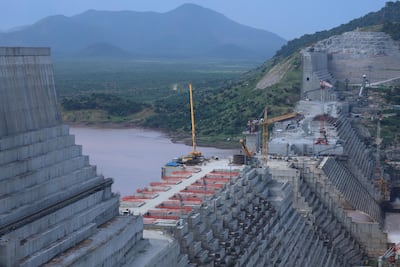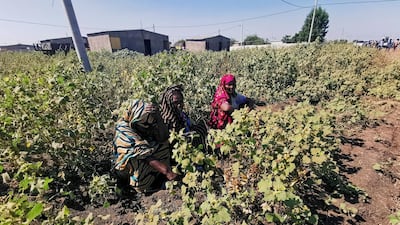Optimism is on the ropes in Sudan and Ethiopia. During recent times, many hoped that both countries were entering a new age of stability and prosperity. In Sudan, 2019's revolution overthrew the brutal dictator, Omar Al Bashir, whose rule kept the country in obscurity and isolation for 30 years. In Ethiopia, the 2018 election of Prime Minister Abiy Ahmed, a recipient of the Nobel Peace Prize, was seen as an important step to ending years of violent anti-government protests and allowing the country to reach its enormous potential.
Now, tensions between both countries over a longstanding border dispute are reaching dangerous levels. On Wednesday, after an Ethiopian warplane entered Sudanese airspace, Khartoum warned Addis Ababa that the incident would have "dangerous consequences" for bilateral relations. This came a day after Ethiopia warned Sudan that it was running out of patience with Khartoum's continued military build up in the disputed region. The area in question, Al Fashqa, is in Sudanese territory, according to a 20th-century border demarcation. However, the region is populated with many Ethiopian farmers.
A particularly worrying incident occurred on Monday, in which five Sudanese women and a child were killed in the region while harvesting crops. Two further women remain missing. Sudan's foreign ministry condemned the attacks, blaming Ethiopian "gangs". The brutality of such crimes against innocent civilians are becoming all too common, with similar incidents happening in Ethiopia's Tigray region, a result of ongoing domestic tensions. Those residing on either side of the border have much in common and should not fall victim to political disagreements.

The border dispute risks spiralling into a regional conflict, with the potential to spark major destruction. The current state of tensions is still a long way off from full-scale war, but a marked deterioration involving Ethiopia, the most populous country in the Horn of Africa, is too dangerous for the international community to ignore. Alongside the border dispute, Ethiopia's internal fighting and a disagreement involving Sudan and Egypt over Addis Ababa's plan to build a dam on the Nile increase pressure in the already-unstable region. One tragic mishap could result in catastrophe.
Both Sudan and Ethiopia have great potential that must not be lost in new conflict. Their people, and the wider region, would benefit from stability in this vital area.
As bilateral relations appear increasingly likely to deteriorate, the role of multilateral organisations is crucial. The African Union's contribution will be particularly important, with its mandate to safeguard the integrity of states on the continent, as well as boost co-operation between fellow members.
In the aftermath of international catastrophes, we inevitably identify moments in which proactive multilateral mediation could have led to earlier resolution. Today, the respective promise of Ethiopia and Sudan, who in recent years have experienced political rebirth, must not be squandered by a sluggish response from the global community.


